Today Team Basil bid goodbye to Denmark with a visit to its most beautiful town and entered our sixteenth country of the trip, Germany. A country we don’t know as well as we should.
We started the morning with a bit of light relief. As we sat eating breakfast we saw a Danish car brought to a halt on the campsite road by our neighbour’s Dutch Sheepdog, which had decided the road was the perfect place for a nap. The driver first shouted at it, then blew his horn and finally tried shouting for the owners, who had in fact nipped to reception. The dog was unmoved. Eventually another of our neighbours took pity on the increasingly irritated driver and tried coaxing the dog, which reluctantly came half way towards him and then went back to the road. After several attempts the dog was persuaded to leave the road for long enough for the Dane to proceed, who at that point saw the funny side. Immediately the car had passed the dog was back on the road to continue his nap.
When we left, the owners had returned and we thus successfully avoided the dog and we proceeded to Ribe, only 30 minutes down the road.
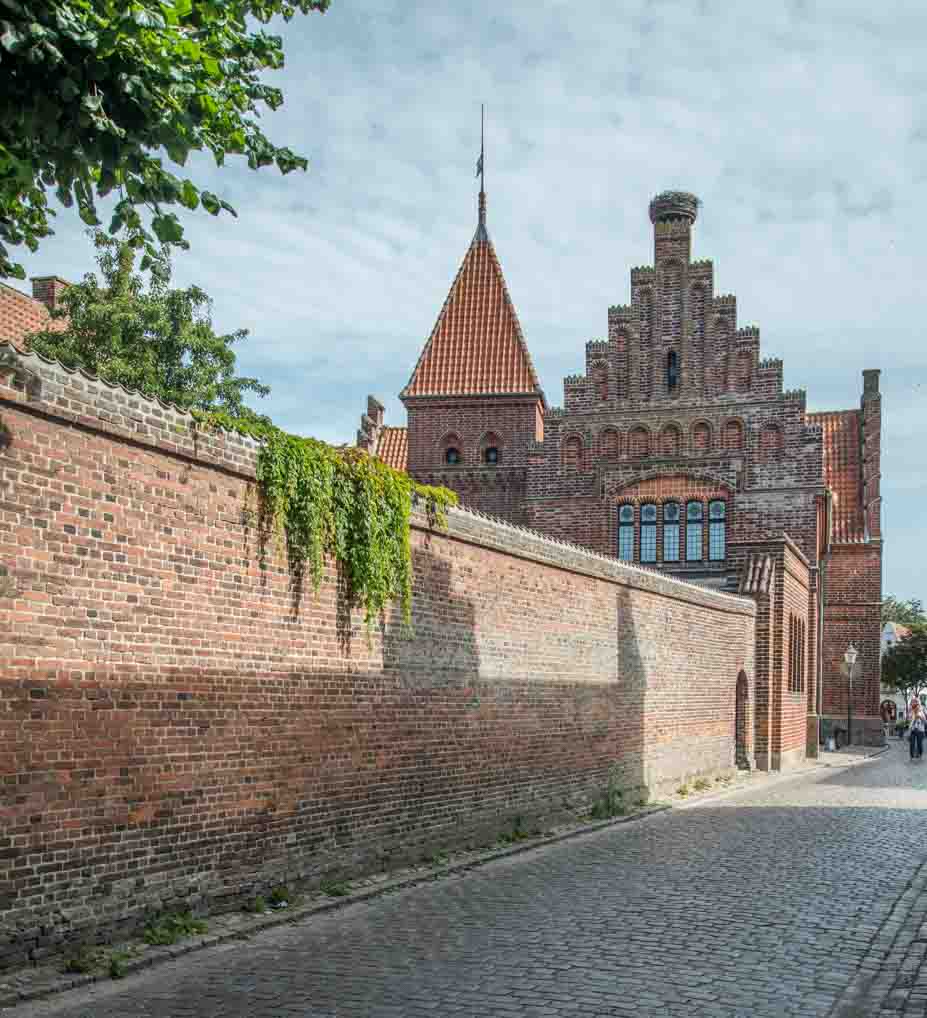
Ribe
Ribe claims to be Denmark’s oldest town, dating from the ninth century. It also has been called its prettiest town, which as we have found in other countries, is often a label put on towns rather too lightly. We parked up in the excellent free parking area set aside for motorhomes and set off for the centre.
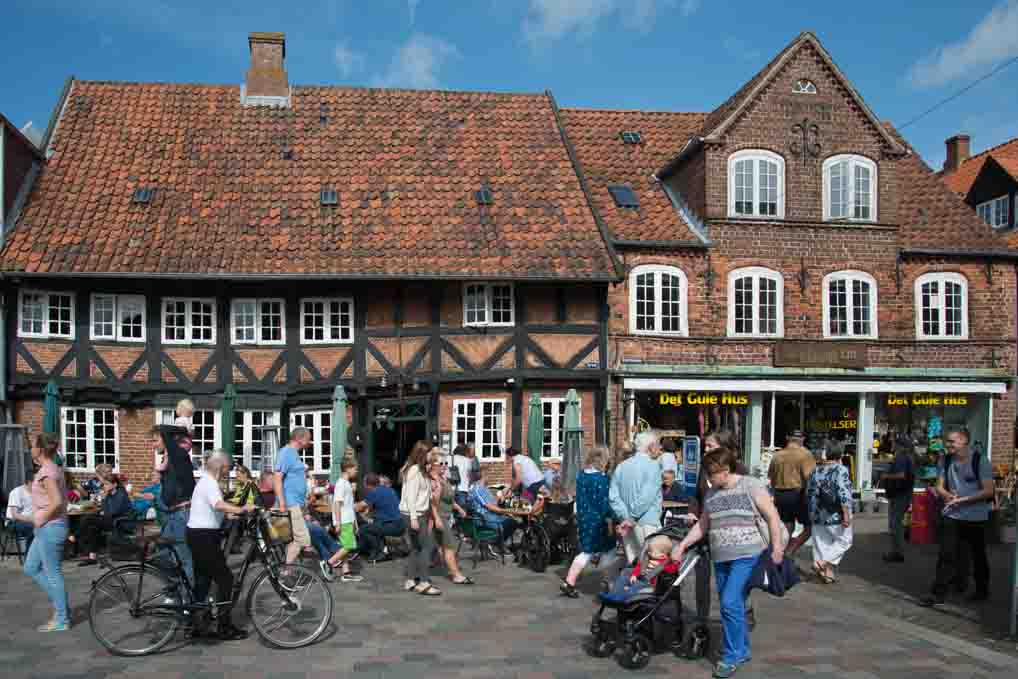
Ribe
For once the “prettiest town” description may well have been accurately applied. We obviously have not been to very many places in Denmark, but if there is a more charming place, it would have to be very special. It is not the signature building, the Cathedral, which is responsible, because for once it is a fairly ordinary and a hotchpotch. The Cathedral was originally built from imported light stone, but during the 13th Century one of the towers collapsed and was rebuilt in red brick!
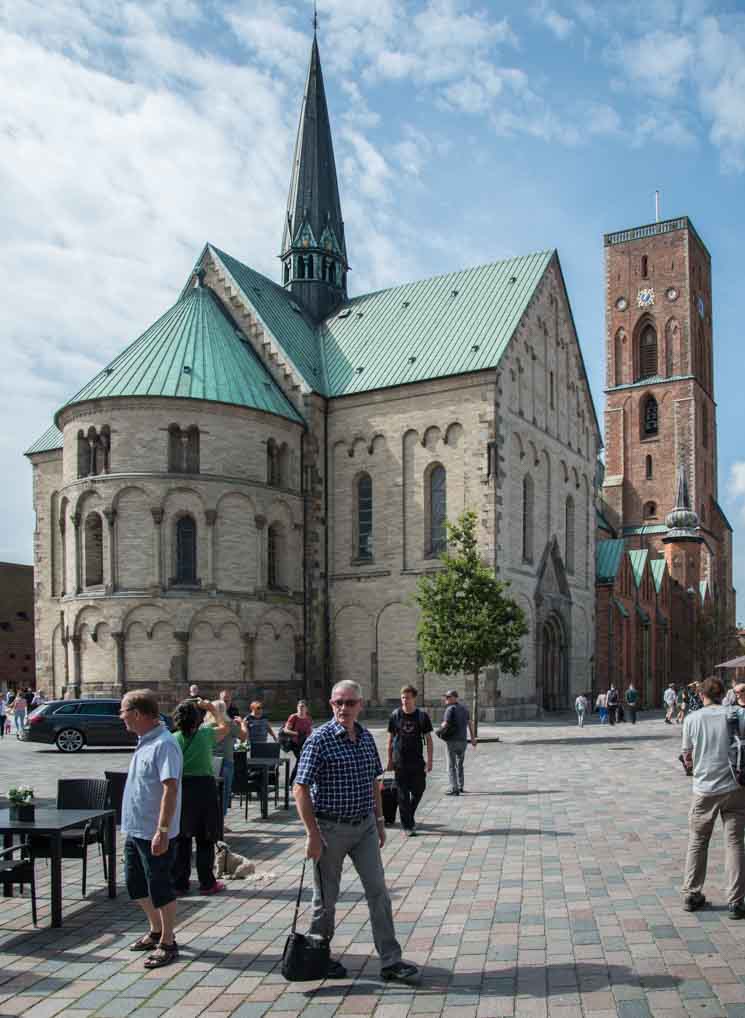
Ribe Cathedral – note the clashing colours of the original building material and the later brick
The town’s attraction lies, rather, with its extensive collection of half timbered houses and Brick Gothic buildings all set along narrow, twisting, cobbled streets. We probably enjoyed Ribe as much as any town we have visited since Vilnius, over two months ago.
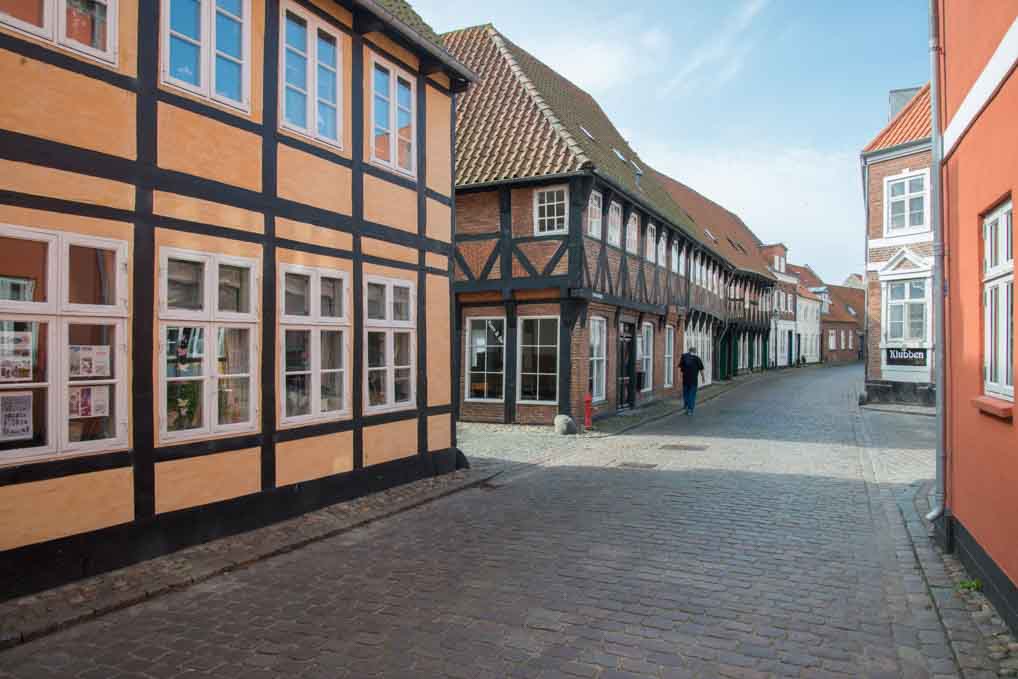
Ribe
While we were wandering the streets we treated ourselves to a Danish Pastry each. I thought they would be for desert this evening, but our restraint soon crumbled and we found a nice bench to sit and scoff our little treats.
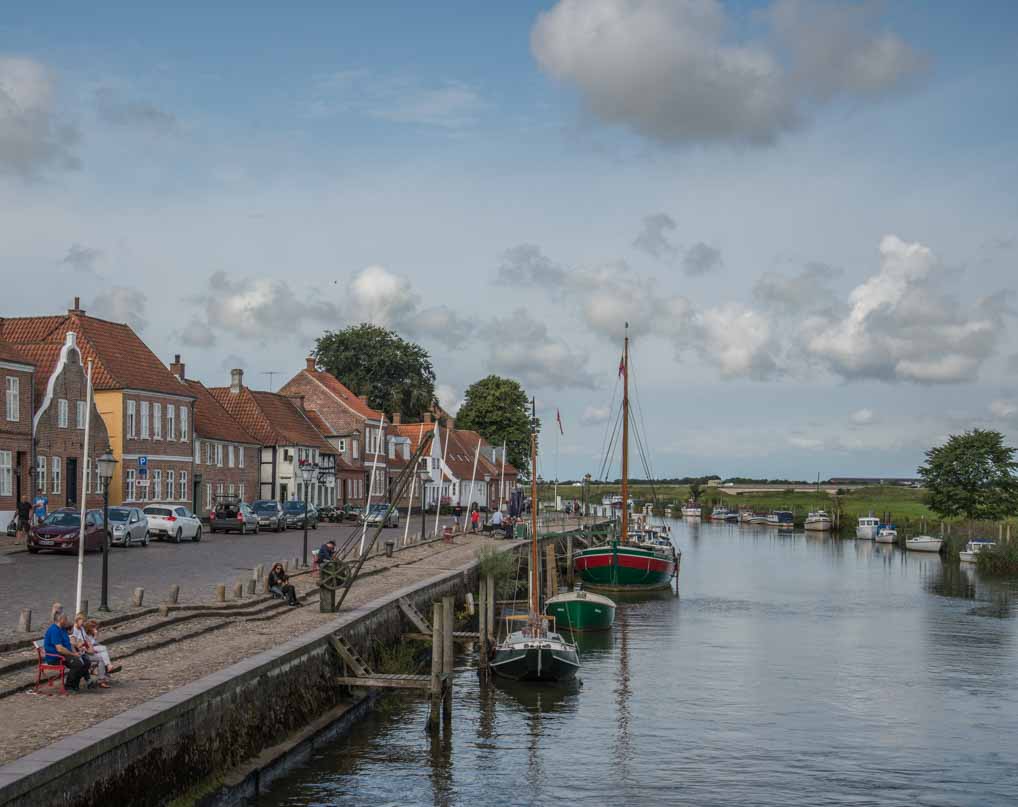
Ribe
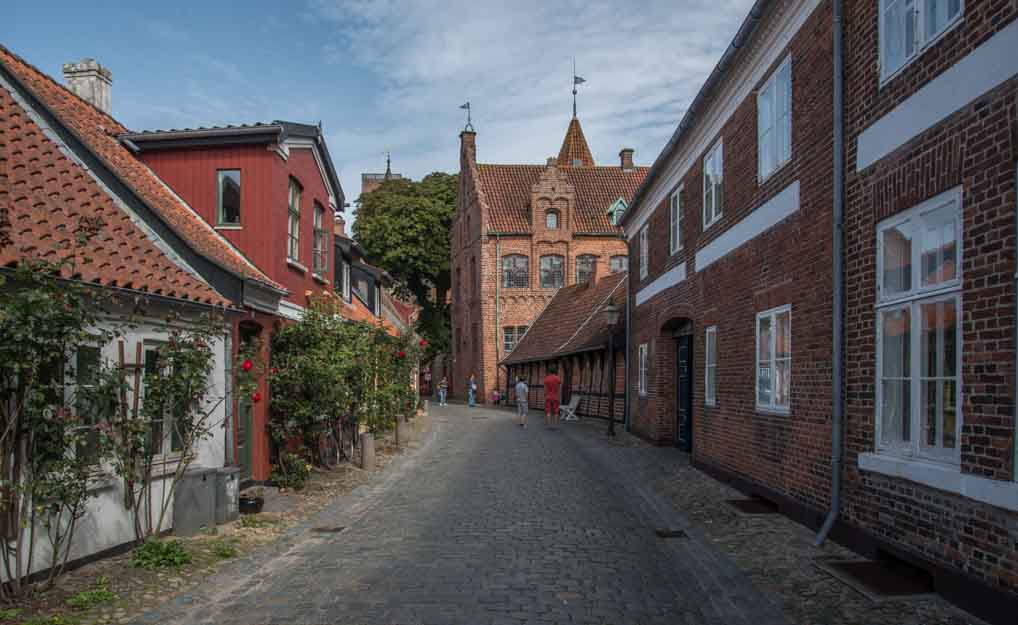
Ribe
After we had finished in Ribe we drove for an hour and had lunch. When we restarted it was not long before we crossed the border into Northern Germany. As usual the border was so inconspicuous that we had to look hard to find any mention of the fact we were entering a new country.
Germany is a place that I feel we ought to know much better than we do and hopefully the next few weeks will start to put this right. Like many Brits our European summer holidays have concentrated on France, Italy and to a lesser extent, Spain. We have even had a two week holiday touring Portugal, but we’ve never had a long stay in Germany. Just the odd day or two, popping over the border during a French holiday or a few days on the way back from Italy.
I have travelled to Germany many times on business, but as usual that was always visiting factories and office blocks. But I am well aware that Germany has a great deal to interest visitors.
I even studied German for three years at school, but as I discovered today on arrival at our campsite, although I’ve got a reasonable vocabulary, sentence construction, beyond the basic, has been lost somewhere in the deep recesses of my brain.
So, for all these reasons, I am looking forward to spending a bit longer trying to get to know the most influential member of the EU a bit better. I have already noticed, at a restaurant near the campsite, that the price of eating out is much more affordable and so I’m anticipating enjoying a few wurst washed down with some excellent German beer.
Our overnight halt is Damp Camperstop (54.575392, 10.015719). It is actually more like a campsite, but at €12 (plus €2 per dog in our case!) it’s prices are more like a Stellplatz*. It is a series of large grassy fields, with some hard standing, where at the moment there are hundreds of motorhomes. As far as I can see they are all German. It is only a short walk to a beach on the Baltic.
* Stellplatz is the German name for a motorhome stopping area. Like Aires in France and Sostas in Italy, there are thousands of them spread across Germany specifically for motorhomes to use for overnight stops. Often there is a small charge and facilities for emptying and filling. Most cannot be used by cars, caravans or tents.
